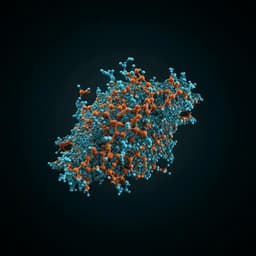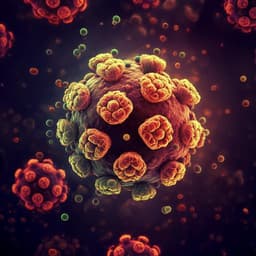
Medicine and Health
A mutation in *CCDC91*, Homo sapiens coiled-coil domain containing 91 protein, cause autosomal-dominant acrokeratoelastoidosis
Y. Zhu, Y. Bai, et al.
Discover the groundbreaking findings of a study that uncovers a splicing mutation in the CCDC91 gene, identified as the cause of Acrokeratoelastoidosis in a three-generation Chinese family. This research reveals significant implications for elastin transport, involving authors Yunlu Zhu, Yun Bai, Wannian Yan, Ming Li, Fei Wu, Mingyuan Xu, Nanhui Wu, HongSong Ge, and Yeqiang Liu.
Playback language: English
Related Publications
Explore these studies to deepen your understanding of the subject.







